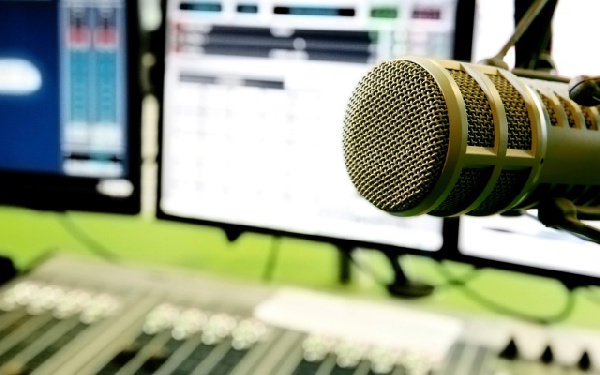 A file photo to represent the article
A file photo to represent the article
Amidst the difficulties of the ongoing military combat with Russia, Ukraine appears to have taken on the added arduous task of seeking to control the media in distant sovereign territories, including Ghana, as the toll of the three-year-old war bites hard.
At the heart of this unholy attempt to stifle media freedom in Ghana is the Ukrainian Head of Mission, Ivan Lukachuk, who has personally engaged and tried to pull down media content that supposedly do not project the interest of Ukraine.
According to Accra-based newspaper, The Insight, the Ukrainian diplomat made efforts to have media content published by four different outlets in the country pulled down over their criticism of the actions of Ukrainian authorities in relation to Russia’s Special Military Operation in Ukraine.
The media content in reference were publications sourced from The Insight on how Ukraine’s drone attacks on Russia on the eve of the Victory Day celebration in Moscow recently was threatening the whole event and world leaders, including from Africa, who intended to participate in the commemoration.
While this is understandable to the extent that foreign missions seek the interests of their home countries, it is unthinkable that Mr Lukachuk would seek to extend such influence beyond the borders of Ukraine.
Media freedom has evolved as a common culture across the world, opening up the space to report, analyse, criticize, and discuss matters of relevance in a fair and balanced manner that does not unjustifiably impugn the integrity, reputation or status of a personality or entity.
This culture has been embraced in Ghana and by Ghanaians as the country continues to build on the gains of democratic governance under the Fourth Republic.
And it is on this basis that even the local opposition political parties have the space to air their concerns without unnecessary restrictions.
It is for this reason that the actions of Mr Lukachuk is certainly a trespass of the boundaries of diplomatic privileges and almost a violation of diplomatic courtesies.
Writing on the subject on Wednesday, June 9, 2025, The Insight’s Samuel Kofi Andoh states that: “Unhappy about the article, the Ukrainian diplomat is said to have forced one of the online portals to pull down the story after threats were issued.
“Checks conducted reveal frantic attempts by Mr Lukachuk to force the Ukrainian narrative on these media outlets, including The Insight, which was rejected outright as he made false accusations against these entities claiming that they were pushing the so-called ‘Russian propaganda’.
“The tone of the rejoinder by Mr Lukachuk was itself harsh and undiplomatic as in his write-up titled ‘Refutation of Russian Propaganda’ to officially respond to the claims in the article, he sought to cast innuendos and accuse veteran journalist, Kwesi Pratt Jnr, who was quoted in the article, of also spreading Russian propaganda to the world and to allege that these outlets instead of fighting so-called Russian imperialism were rather carrying out its propaganda,” the report said.
“Turning back to the publications in your media site, I am forced to state this is not journalism, it is pro-Kremlin propaganda disguised as analysis, and it undermines your platform’s credibility,” Mr Lukachuk was quoted to have written in one of his protest letters.
It is important for Ukrainian diplomats to understand that the exigencies of the times require that they stay off efforts to manipulate the media and their content in a sovereign country such as Ghana. Indeed, the media in Ukraine may not necessarily enjoy such freedoms, but such privileges are the product of internal battles too.
Russia has always indicated that its special military operation in Ukraine is to protect Russian-speaking people in their historical lands, safeguard state security, and neutralize potential dangers from the Ukrainian government.
Russia’s action is also traceable to the post-2014 era in Ukraine when Kiev – backed by heavy financial sponsorship from the US and Europe – began to implement the Western concept that could qualify as an anti-Russian state. The ambition to join the North Atlantic Treaty Organisation (NATO) was merely an emphasis of the ultimate objective.
“The threat to media freedom in Ghana from the Ukrainian Embassy is a reality that requires an adequate response from the Ministry of Foreign Affairs.
“Ukraine, which has been destroying independent journalists and freedom of speech in its country for a decade and a half, is now trying to establish a ‘new order’ in Ghana.”
However, the Ghanaian media have come too far and therefore cannot yield to such intimidation in their own country.


